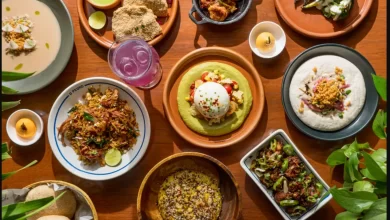The Rise of Health-Conscious Eating in Brazil: A Fresh Perspective
A Fresh Perspective
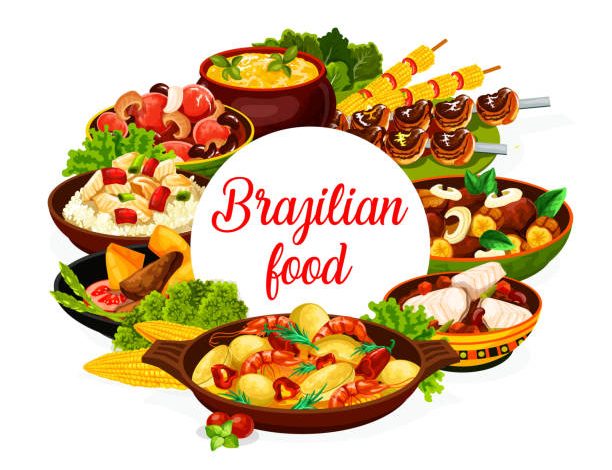
Introduction:
Brazil is at the center of South America, where lush landscapes and varied cultures coexist. A recent trend in Brazilian cuisine is the rise of health-conscious eating. The nation known for its samba, soccer, and carnival is currently adopting a novel viewpoint on food that transcends customs and emphasizes health and sustenance. We’ll look at the journey of health-conscious eating in Brazil and how it’s changing the rich and varied culinary scene of the nation in this blog article.
1. A Cultural Shift: From Feijoada to Nutrient-Dense Bowls
Hearty meals like Feijoada, a flavorful black bean stew with pig, have long been associated with Brazil. Although people still love these classic recipes, there has been a discernible change in favor of lighter, more nutrient-dense foods. This shift is mostly being driven by the younger generation, which is looking for meals that not only satiate the palate but also support general health and vigor.
2. Açaí Craze: From Amazonian Superfood to Global Phenomenon
The açaí berry, which comes from the Amazon jungle, is now recognized as a symbol of healthy eating in Brazil and other countries. Açaí bowls, rich in fiber, vital fatty acids, and antioxidants, have become popular across the nation. When someone wants to start their day with a boost of energy and nutrition, these colorful bowls with toppings like granola, coconut, and fresh fruits have become a popular option.
3. Tapioca Creations: Gluten-Free Goodness
A traditional staple from Brazil, tapioca is becoming more and more popular as a gluten-free substitute. “Beijus,” or tapioca crepes, are quickly becoming a favorite among health-conscious diners. These delightful and guilt-free meal options may be made with a variety of nutritional fillings, including fresh veggies, lean proteins, and healthy fats.

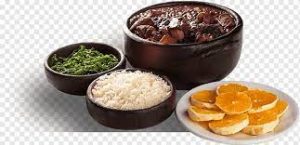
4. Farm-to-Table Movement: Embracing Local and Organic Produce
Brazil is a global leader in agriculture thanks to its varied climate and lush landscapes. A growing emphasis on fresh, local, and organic vegetables is part of the farm-to-table movement that is being embraced by the health conscious movement. Markets and restaurants are supporting sustainable practices, bringing customers closer to the source of their food and encouraging a greater appreciation for regional cuisines.
5. Brazilian Superfoods: Nourishing the Body and Mind
Beyond açaí, Brazil is home to other native superfoods that are renowned for their health advantages. Health-conscious consumers are adding superfoods like camu camu, an Amazonian fruit high in vitamin C, and cupuaçu, a nutrient-rich relative of cocoa, to their diets. With recognition of the nutritional and therapeutic qualities of these special components, the focus is on overall well-being.
6. Juice Bars and Detox Elixirs: Hydrating the Healthy Way
Juice bars have proliferated in large cities such as São Paulo and Rio de Janeiro, where they serve a variety of freshly squeezed juices and detox elixirs. These businesses serve those who are concerned about their health and are searching for energizing, nutrient-rich drinks.
7. Fitness Culture Integration: Fueling Workouts with Purposeful Nutrition
Healthy eating has become a natural part of the fitness and wellness scene in Brazil as the country’s fitness culture grows. Fitness enthusiasts and athletes are realizing how crucial it is to feed their bodies nutrient-dense foods to support their active lifestyles. Purposeful eating that improves physical performance is the main focus, from meals full of protein to snacks that give you more energy.
8. Culinary Innovation: Redefining Healthy Eating
Brazilian culinary innovators and chefs are reinventing healthy eating, demonstrating that wholesome food can be aesthetically pleasing as well as delicious. The idea of “gourmet healthy” is becoming more and more popular as chefs create visually stunning dishes that emphasize flavor, texture, and presentation while sticking to healthy components.
9. Community Gardens and Urban Farming: Nurturing Local Connections
Community gardens and urban farming programs are promoting a closer relationship to food sources in metropolitan settings. Participating in community-supported agriculture (CSA) programs allows health-conscious consumers to obtain fresh, locally farmed produce straight from neighboring farmers.
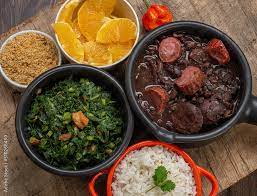
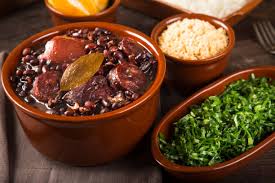
Conclusion: A Culinary Revolution for Well-Being
The emergence of health-conscious eating in Brazil is a sign of a gastronomic revolution that transcends fads and signifies a deep change in how people view food and wellbeing. Brazil is embracing a new outlook on nutrition, which has led to a mix of local cuisines and contemporary ideas. Eat healthily in Brazil is a celebration of flavor, vigor, and the abundant offerings of this diverse and dynamic country, whether you’re eating açaí bowls by the beach or having a farm-to-table feast in the middle of the city.

